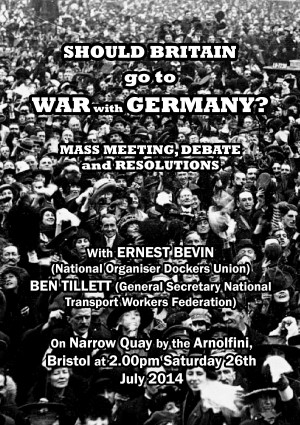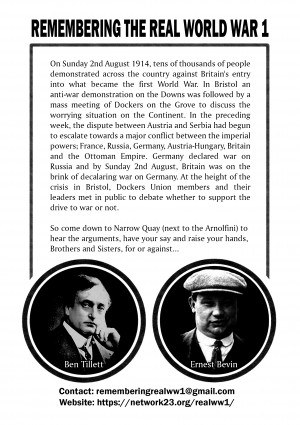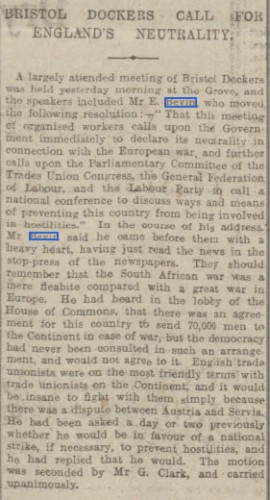In this event in our autumn programme, Bristol’s cultural links to WW1 are explored through the eyes of asylum seekers and refugees which defy the official narrative and glorification of ‘The Great War’. The impact of WW1 and its links to contemporary conflict are examined through the creation of digital stories which visibly express the real issues of displacement, identity and misery still felt today by Bristol’s residents.
Echoes of the ‘Great War’: Imperialism, displacement and migration
Date: Thursday 30th October, 2014
Time: 8:00 pm to 10:00 pm
Venue: Easton Community Centre, Kilburn Street, Bristol, BS5 6AW
Map: http://www.eastoncommunitycentre.org.uk/contact/
Price: Donation
For more details see here
For full programme of events see here
For more information email rememberingrealww1@gmail.com



